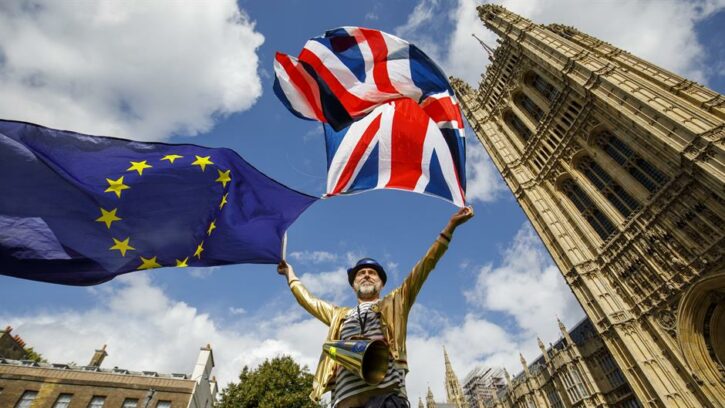
British and European Union negotiators have agreed on a draft Brexit deal, UK Prime Minister Theresa May's office said on Tuesday, more than two years after the country voted in a divisive referendum to withdraw from the bloc.
May has called an emergency Cabinet meeting for Wednesday to discuss the draft deal, her office announced, after months of tortuous negotiations and marathon talks in recent days.
A Downing Street spokesman said that the Cabinet would meet at 2 p.m. local time to “consider the draft agreement the negotiating teams have reached in Brussels and to decide on next steps.
May's rocky premiership has hung on reaching a Brexit deal. She had hoped to strike a draft agreement by this week to have any hope of getting the deal through the required ratification processes by the time Britain leaves the EU at the end of March.
She is now faced with the task of getting Cabinet approval of the draft, then more painfully, passing it through Parliament.
Several EU officials have urged caution over the deal, saying there were still details to be agreed upon, with one diplomat describing the union as in “a waiting mood.”
“The EU member states have not seen the draft. It's at the technical level. We have an idea of the main parameters, a broad backstop that includes a customs union for the UK and regulatory alignment for Northern Ireland. But the member states have not seen the text at this stage,” the official told CNN on condition of anonymity.
Ambassadors from the EU's other 27 states will meet in Brussels on Wednesday at the same time the UK Cabinet meets.
The agreement sets out the terms of Britain's divorce from the union after 45 years of membership. It was reached after talks went through the night and the two sides agreed all the technical details of the withdrawal.
Talks had stalled over the thorny issue of the border between EU-member Ireland and Northern Ireland, which is part of the United Kingdom.
Both sides wanted to avoid a “hard border” between the territories but reached an impasse over the terms.
Hardline Brexit supporters in May's Conservative Party have argued that the Prime Minister has sought a deal that ties the country too close to existing EU rules and regulations.
May has had to tread a fine line between keeping those hardliners happy and ensuring the UK is in a favourable trade position with the EU.
Chief among hardliners’ concerns is that an agreement on the EU-UK land border will tie the country to the EU's customs union and parts of the single trade market.
MP Boris Johnson, who resigned as Foreign Secretary earlier this year, told the BBC that such an arrangement was “utterly unacceptable to anyone who believes in democracy” and would hand both Brussels and Dublin more power than London on certain issues.
May on Monday denied she would enter her country in any deal that compromised British laws, borders or money. “It must secure the ability to strike new trade deals around the world,” she said.




